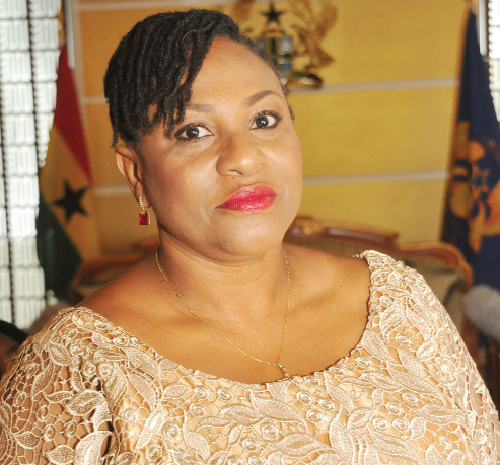
NCCE to recruit 240 new workers
The National Commission for Civic Education (NCCE) has received financial clearance to recruit 100 personnel this year to replace its lost staff.
This is in addition to the 140 others that were recruited earlier this year through clearance from the Ministry of Finance.
The Chairperson of the Commission, Ms Josephine Nkrumah, who disclosed this to the Daily Graphic in an interview last Thursday, said the move was a major step towards addressing the acute staffing challenge confronting the independent state institution.
“For the first time since I joined this Commission, we have seen some steps to address our staff challenge. In the five years prior to 2020, we have had only 45 staff replacements when hundreds of the staff members have exited the Commission over the years. Recruiting 240 in a year is a good start,” she said.
Staffing challenge
However, she said more needed to be done to address the myriad of challenges facing the NCCE especially in terms of the staff strength and logistical constraint.
Ms Nkrumah said while the country’s population continued to increase, the NCCE was rather witnessing a dwindling staff strength, a development that made it difficult to be visible and vibrant in all parts of the country.
For instance, she said an assessment of the human resource needs of the NCCE in relation to the population in 2007 had shown that 1,767 staff were required for Ghana’s 18 million citizens as of that time.
“Now, the population of the country is over 30 million but our staff strength is 1,434, so it means that we need almost double this figure,” she added.
Ms Nkrumah said the weak staff strength had negatively affected the NCCE’s work of providing civic education in the communities.
No vehicles
Touching further on the challenges of the Commission, she said although Act 452 of 1993 which established the NCCE required it to have operational offices in all districts, the lack of vehicles made it difficult for that mandate to be fulfilled.
Ms Nkrumah said the inactivity of the Commission at the local level was partly because it had only 70 vehicles for its work at the head office and the 260 districts.
“At the minimum, we need vehicles for each of the 260 districts that we have as well as the 16 regional offices and the head office. Currently we have just 70 vehicles and the ages of the fleet averages 10 years.
“You see, we have no vehicles for all the districts and the few we have are all aging, meaning that the cost of maintaining them is very high,” she said.
The NCCE chairperson added that the cost of maintaining the aged vehicles had taken a negative toll on the Commission’s budget.
She said against the backdrop of a limited budget, the NCCE could not keep all the 70 aged vehicles on the road because “there are other pressing needs to be met.”
Ms Nkrumah said the Commission had to rely on borrowed vehicles and the benevolence of the National COVID-19 Trust Fund to carry out sensitisation programmes in communities on the need to observe the safety protocols to curb the spread of the coronavirus.
“We received 50 vehicles from the government and 10 others from the National COVID-19 Trust Fund for the COVID-19 sensitisation but the vehicles from the government were loaned to us. We have to return them this month (August) if there is no extension of the use,” she added.
Innovation
The NCCE boss said given that the Commission was committed to fulfil its mandate amid the challenges, it had resorted to the use of social media and community radio to carry out sensitisation programmes.
She said although that innovation had been helpful to an extent, there was still more to be done to get the right results.
“Civic education is about mindsets and goes beyond engagement on radio and social media. It is an interpersonal engagement with people in which they express their feelings and share their views; so we still need to go to them,” she said.
